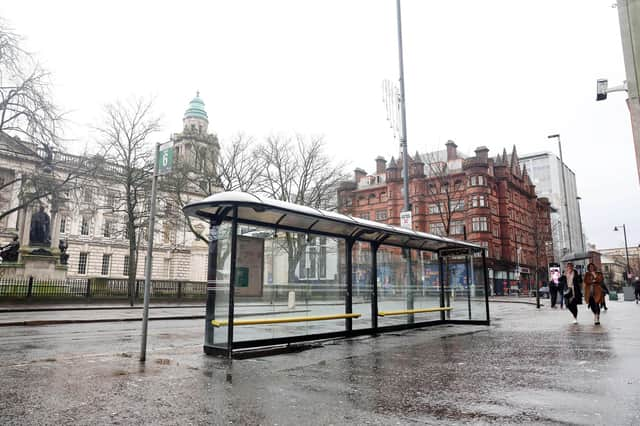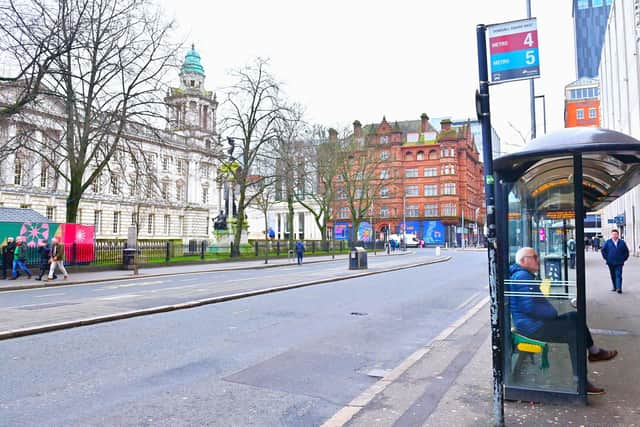Stormont's main parties dodge questions on funding pay rises amid more transport strikes


Today, Northern Ireland’s public transport system ground to a halt as workers took strike action over pay.
There was criticism from business owners whose trade was impacted by the third day of action in just over a week.
Advertisement
Hide AdAdvertisement
Hide AdHowever, political debate on the issue was almost non-existent – and the main parties have all dodged questions from the News Letter about how they would fund the pay rises they broadly support.


Economist Esmond Birnie said the local parties more or less universally seem to back pay demands, “but don’t make much commentary about the costs of strikes. The obvious explanation is obviously seeking popularity”.
Mr Birnie argued that the view of the parties is that the money for pay deals “can and should” come from the UK government.
"Their expectation is backed up by the ‘deal’ on the table earlier this week – which does include approximately 500 million for public sector pay. It’s not entirely irrational for the local parties to see this as an issue they cast back to the London government”, he said.
Advertisement
Hide AdAdvertisement
Hide Ad"But in the long term, is this a particularly good way for Northern Ireland to manage its economic policy, its industrial relations, its public finances – that question hangs in the air.”
The Ulster University economist added: “If the burden of financial decisions were to rest at Stormont, rather than London, you might see a different approach”.
When the Secretary of State offered a £3bn financial package for a restored Stormont, he said parties will be expected to take tough decisions about how the Executive manages its budget.
The News Letter asked all the main parties what the cost of a pay rise for transport workers would be - and how would it be paid for.
The DUP didn’t respond.
Advertisement
Hide AdAdvertisement
Hide AdThe Ulster Unionist Party didn’t say whether they supported the strikes or the pay demands – but were critical of the impact on business. They didn’t address the question on costs – and instead blamed the DUP for not accepting the £3 billion on offer from the government.
Their infrastructure spokesperson John Stewart said the strike “will have greatest impact on small businesses, many of whom are reliant on improved custom this weekend to keep their doors open”.
The Alliance Party didn’t address costs either.
A spokesperson said: “Workers and businesses should not have to wait a day longer for restoration of the Executive and ability to unlock the financial package on offer to enable employers and trade unions to negotiate settlements and conclude industrial action”.
Sinn Fein blamed the British government and the DUP for workers failing to get a pay rise – but also didn’t address the cost.
Advertisement
Hide AdAdvertisement
Hide AdThe SDLP – which will form the official opposition if Stormont returns – said workers deserved “pay justice” but didn’t give any indication about where they think funding should come from.
The TUV – often critical of Stormont’s reliance on Westminster bailing it out – blamed the government for not making the three billion pounds available to striking staff.
The party also hit out at Secretary of State choosing which financial decisions he was prepared to make – highlighting his pledge to find the money to build Casement Park.